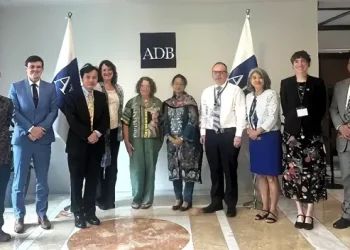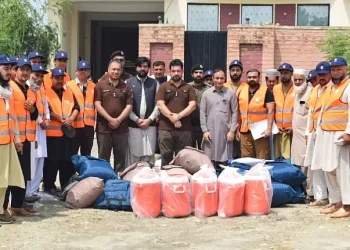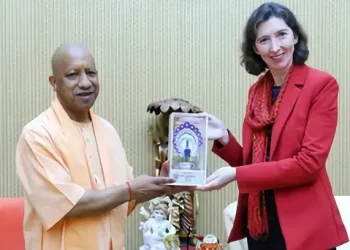The UK’s Foreign, Commonwealth & Development Office (FCDO) Director General for Humanitarian and Development, Melinda Bohannon, has underscored the importance of private sector partnerships during her inaugural visit to Pakistan.
This trip marks a decade of the UK’s substantial £155 million investment in Karandaaz, a initiative aimed at fostering economic growth and stability in the region.
Celebrating a Decade of Investment in Karandaaz
Melinda Bohannon’s visit to Pakistan is a testament to the UK’s long-term commitment to development and humanitarian efforts.
Over the past decade, the £155 million investment in Karandaaz has been instrumental in promoting financial inclusion, improving access to finance for small and medium-sized enterprises (SMEs), and supporting women’s economic empowerment.
Climate, Security, and Education
Climate Action and Private Sector Engagement
The UK is emphasizing the critical role of private sector partnerships in addressing climate change. By leveraging private sector expertise and investment, the UK aims to accelerate climate action and support sustainable development projects globally.
For instance, the UK has collaborated with private actors on Disaster Risk Financing, which has the potential to unlock significant private funding in humanitarian crises, as highlighted by Ambassador Barbara Woodward at the UN Security Council.
Enhancing Security Through Public-Private Partnerships
Security is another pivotal area where public-private partnerships are making a significant impact. The UK has supported the development of ‘peace bonds,’ a new investment category designed to finance peacebuilding initiatives.
This innovative approach underscores the private sector’s role in preventing conflict and sustaining peace.
Education and Empowerment
Education remains a cornerstone of the UK’s development strategy. Partnerships with the private sector are crucial in enhancing educational outcomes, particularly in fragile contexts.
For example, the UK’s partnerships with organizations like UNHCR have supported education projects, ensuring that refugees and vulnerable populations have access to quality education.
Leveraging Technology for Humanitarian Responses
Rapid Innovation in Crisis Situations
The integration of technology is revolutionizing humanitarian responses. The UK has invested in mobile innovation funds, which have enabled rapid detection and treatment of diseases like cholera.
This innovation has reduced cholera detection time from three days to just 30 minutes, a critical advancement in crisis-hit areas such as Syria, the Democratic Republic of Congo, and Myanmar.
To Sum Up
As the UK continues to strengthen its partnerships with the private sector, the potential for transformative impact on global development, climate action, security, and education is vast.
Melinda Bohannon’s visit to Pakistan marks a new chapter in this collaborative journey, highlighting the UK’s commitment to leveraging private sector growth for sustainable and equitable development.
Sources: THX News, British Deputy High Commission Karachi & British High Commission Islamabad.









